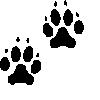Stop your pets from polluting our water
Pet poop pollutes. Pet owners can step up to make a difference.
Scoop and bag. According to several national studies, about 40% of owners  do not clean up after their pets. Most people recognize that dog and cat poop can be a nuisance and can affect water quality, but they think it is a minor contributor to the overall problem. The effects are bigger than most people think. It’s also something that is in our control, and much easier than slowing the multiplication of geese or fixing aging septic systems. So scoop the poop and throw it into the trash.
do not clean up after their pets. Most people recognize that dog and cat poop can be a nuisance and can affect water quality, but they think it is a minor contributor to the overall problem. The effects are bigger than most people think. It’s also something that is in our control, and much easier than slowing the multiplication of geese or fixing aging septic systems. So scoop the poop and throw it into the trash.
It’s not just fertilizer. Dog and cat poop is not fertilizer. It’s the same stuff that humans have learned to put into toilets and septic systems. The primary reason we do that is to control bacteria, including e coli. Studies in Seattle showed that 20% of the identifiable watershed bacteria came from dogs. The US EPA estimated that for watersheds up to 20 square miles, 2 – 3 days of droppings from 100 dogs would contribute enough bacteria and nutrient to close waters to swimming and fishing. And here size doesn’t matter – even small dogs contribute to the problem. Put cat waste in the trash too.
 What you don’t pick up grows weeds or algae in our streams, lakes, and reservoirs. Pet waste contains nutrients that promote weed and algae growth. A 45 pound dog produces 2 pounds of phosphorus annually. Each pound of phosphorus contains nutrients for 500 to 1100 pounds of plants. These nutrients wash off roads and lawns and run downstream into our waterbodies.
What you don’t pick up grows weeds or algae in our streams, lakes, and reservoirs. Pet waste contains nutrients that promote weed and algae growth. A 45 pound dog produces 2 pounds of phosphorus annually. Each pound of phosphorus contains nutrients for 500 to 1100 pounds of plants. These nutrients wash off roads and lawns and run downstream into our waterbodies.
Dog feces can transmit a number of pathogens to wildlife:
- Parvovirus affects other canines, and was the source for wolf pup mortality in Glacier National Park area in the early 1990s.
- Muscle cysts can affect ungulates like deer and elk.
- Leptospirosis is a bacterial disease that affects the kidneys and urinary tract of most species of mammals.
Parasites such as ticks, keds, tapeworms, and fleas can be passed to wildlife
Stop the water from polluting your pets
Excess nutrients in our lakes can cause algal blooms. Certain algal blooms can sometimes release toxins. Pets who go in the water can accumulate the algae on their fur. When they clean their fur by licking it, they can ingest these toxins. So if you see a bloom, keep your pets out of the water. If they go in a bloom, wash them off with clean water to protect them from ingesting possible toxins.